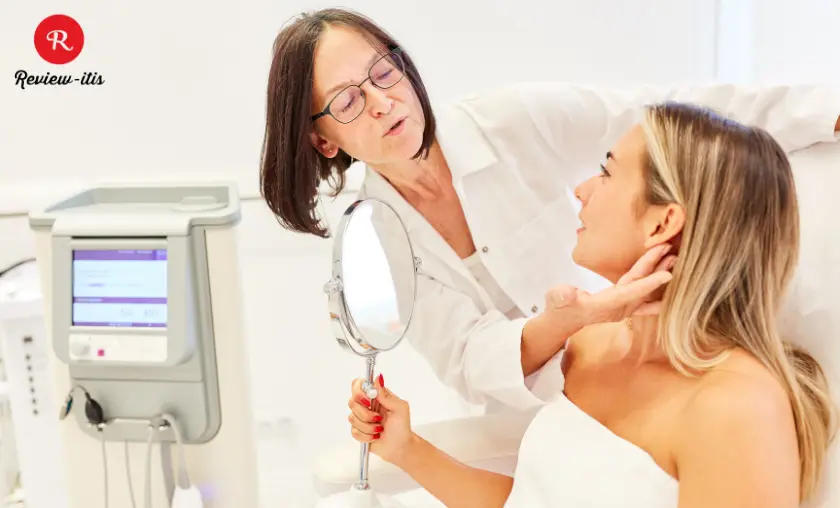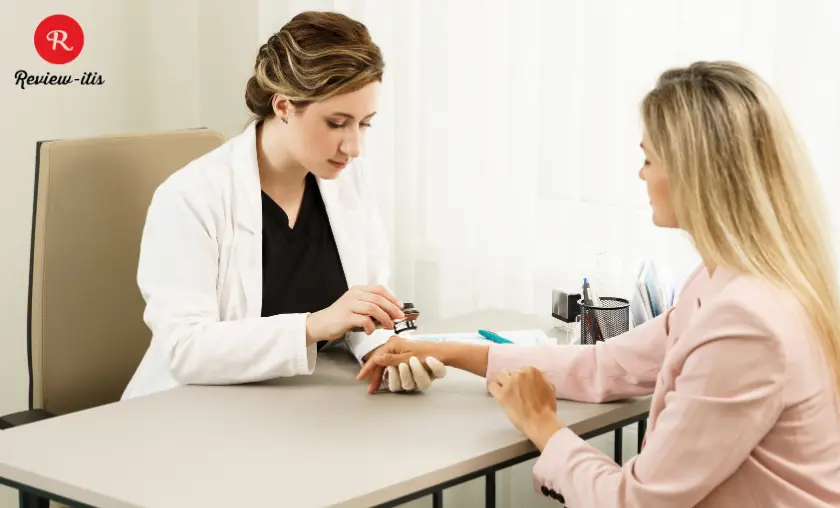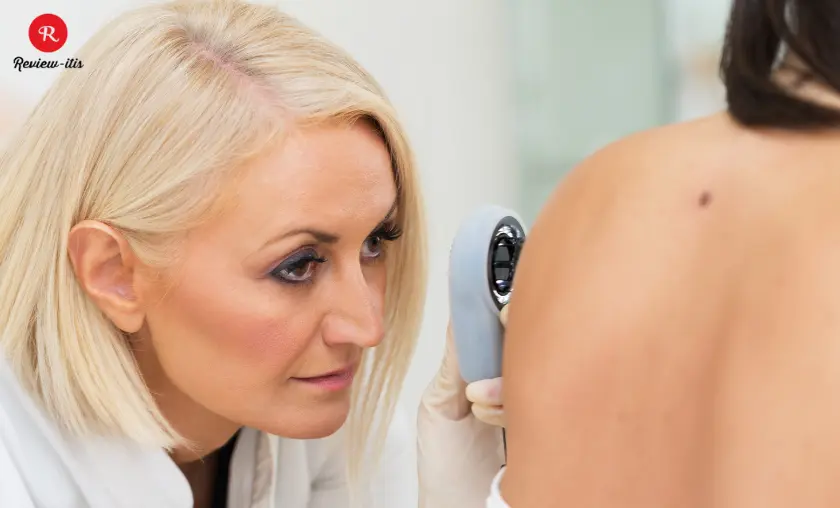One of the main plot points in the story of becoming an associated adult is changing your guardian-approved pediatrician for a doctor. Eventually, he recognizes the requirement of a health care physician and, despite fearing creating his own doctor’s appointments, accepts it.
How to Pick the Right Dermatologist, So why not see one for the surface as well? We have a tendency to refer to your skin, of course. And just like finding your own Dr., selecting the right medical specialist doesn’t come naturally.
Without a compelling reason, like skin allergies as a toddler. Medicine is often associated with an afterthought, but it definitely shouldn’t be.
From routine carcinoma screenings to treating discharge skin conditions (which are some of the things girls ages 20-29 and 40-49 face). Your doctor will help you level up the health of your skin, or at least. The right one can. , so it is vital to select the most effective person for the task.
If you have never been to a specialist doctor before but feel ready, able, and willing to take this step right now, here are some tips to help you get started:
Table of Contents
The Best 7 Ways to Choose the Right Dermatologist!
Determine if Your Dermatology Needs Are Medical, Surgical, or Cosmetic

Most likely, you have a priority that you would like to resolve, but not all medical specialists are suitable.
Dermatological care is like several different types of medical help. Must be specific to your wishes as a patient. This can be a transactional service in the end.
Dr. Adarsh Vijay Mudgil, a board-certified dermatopathologist, says he should start by asking himself if his wishes are:
- Medical (for example, cystic skin disease or rosacea)
- Surgical (for example, removal of a benign growth or nodular melanoma)
- Cosmetic (for example, facial sculpture)
They can even be tops or a dance band of 2. For example, the removal of eye bags is cosmetic and surgical.
Regardless, Dr. Mudgil says this self-assessment is crucial because medical expertise is such a diverse medical field. For example, my practice focuses on aesthetic medicine, medical medicine, and skin pathology. But I don’t perform carcinoma surgeries, he explains.
Ideally, you should choose a medical specialist whose specialty most closely aligns with your wishes. If you’re not sure, choose the doctor’s office and ask If the medical specialist you’re likely to see is fully trained to treat your specific areas of concern.
They imply that they won’t be right for you or that you simply need a specialized service that they don’t provide, don’t be afraid to be left wanting.
If Applicable, Identify Dermatologists Who Treat People of Color

Its natural color affects its desire for medicine.
Dr. Saya Obayan, a World Health Organization board-certified clinical medicine specialist who focuses on the care of diseases of the skin, hair, and nails, says If you are a person of color. The first thing you should do is find someone who the World Health Organization has experience treating skin of color.
I tend to notice that skin of color forms pigment very easily, so once a person with an associated olive skin tone or darker complexion is trying to find a doctor, they should look for someone the Organization World Health Organization knows [with] treating the physiological condition, he reveals. [Find someone] The World Health Organization is ready to treat the underlying conditions as well as formulate a concept to treat dark spots.
If you can, Dr. Obayan suggests finding a medical specialist who has also published a credible work on the subject by the World Health Organization.
An experience by skin type and color is very important when it comes to scar treatments such as micro-needling and laser.
You may be tempted by the Instagram results. However, not all skins are created equal. Dark skin tones react differently and have the following risk of excessive scarring or keloids. The possibility increases when the procedure area unit staffed by someone from the World Health Organization lacks experience in managing such complications.
And Dr. Obayan says she’s nowhere near skin-deep either.
A good doctor should also take an interest in your hair and scalp routine. That’s different for someone with type three or type four hair. All of these factors, in addition to your medical history and lifestyle, are vital elements when it comes to receiving optimal medical care.
Plan Out How You Will Be Paying
Will your current insurance cover your medication costs, or will you pay out of pocket? The solution depends very much on your reason for seeing a specialist. Can significantly influence which UN agency you choose.
To be covered by your insurance, the specialist must first be in-network. You’ll usually find in-network dermatologists online through your insurance website; otherwise, you will contact the dermatologist’s office to see if they are contractible, along with your insurance underwriter.
Next, he will need to check if your specific wishes are aligned.
For your insurance to hide something, it may have to be a medical or surgical necessity. While what insurance covers (and what it takes to get it covered) will vary by company, here’s a helpful guide:
| Service | Covered by Insurance: Yes or No? |
| Skin Cancer Screening & Treatment | ✓ |
| Infections & Rashes | ✓ |
| Varicose Vein Treatment | ✓ |
| Acne | ✓ |
| Allergies | ✓ |
| Psoriasis | ✓ |
| Portwine Stain Removal | ✓ |
| Shingles | ✓ |
| Eczema | ✓ |
| Hives | ✓ |
| Warts | ✓ |
| Keloids | ✓ |
| Botox | No |
| Tattoo Removal | No |
| Chemical Peels | No |
How to Pick the Right Dermatologist
You Should Know…
- Screening and treatment for skin cancer: Doctors recommend screening for carcinoma at least once a year.
- Varicose Vein Treatment – Made to relieve symptoms caused by varicose veins, as well as pain, swelling, and leg cramps.
- Botox: Dr. Mudgil points out that cosmetic procedures, such as botulinum toxin and dermal fillers, are never included in insurance plans as they are considered elective procedures.
- Chemical peels: can also be coated for the treatment of keratosis (pre-cancer) or, in some cases, for the treatment of skin diseases.
Any UN agency that is not insured or will be paying out of pocket should be upfront about this. Asking about approximate costs and payment plan options available to them.
Verify the Dermatologist’s Credentials

This is crucial when seeing a doctor for the first time. Don’t overlook it.
Physicians can usually list their certifications and credentials on their websites. It will also verify a doctor’s board certification (meaning they have been trained extensively and solely in dermatology) with the Yankee Academy of Medicine or the Yankee Board of Medicine.
The former also allows you to look for qualified dermatologists in your area by zip code.
But Don’t Shy Away From Consults With Physician Assistants and Nurse Practitioners
Physician assistants and nurse practitioners are available at various dermatologist medical offices and typically have many years of experience treating skin problems. They are trained by specialists to provide care.
Jennifer Winter, a specialist with the Society of Physician Assistants of Medicine, has spent the past nineteen years operating with board-certified dermatologists who provide general and surgical care to patients.
As long as the specialist is offered for consultation, don’t back out of PA and NP visits, she says. She might get an appointment [with them] a lot quicker than with the doctor.
Scour Reviews With a Grain of Salt

At this time, she already recognizes that this person is professionally qualified. She currently wants to know if they are right for you.
Most medical offices are searchable online and offer Google and Yelp reviews, as well as reviews on websites like HealthGrades.com, Vitals.com, and RateMDs.com, from past buyers. However, while credentials are an honest way to verify qualifications, she ultimately wants a hands-on UN agency to make her feel good about being herself. If you don’t already have a specialist, our Healthline FindCare tool will help you connect with doctors in your area.
Red flags should encompass something that may be a deal-breaker for you, for example:
- An unwelcoming workplace
- Hostile way
- Hidden charges
- Non-specific treatments
- Unsatisfactory results
- Sales-oriented behavior
Look at the Online Presence of the Offices
- Winter tells the North American country that each state maintains a record of actions taken against physicians, physician assistants, and nurse practitioners that may be worth reviewing. All you have to do is Google your state health and appearance department for the disciplinary and corporal actions tab.
- If suggestions about the dynamics of your facial expression make you uncomfortable, you’ll also want to avoid offices that heavily promote cosmetic surgery on their website or social media.
More
And while reviews will shed light on these flags, keep in mind that medical reviews are risky business for two main reasons.
First of all, most patients who have had a positive or satisfactory experience have no real motivation to leave a review unless such reviews are invited by the specialist himself. Someone who has had a negative experience, on the other hand, can voice their complaints online, and it’s often difficult for doctors to respond, thanks to privacy protection laws.
The second most pertinent reason why you should be careful when reading reviews online is that everyone has different levels of satisfaction and medical needs. If you can, set reviews from people who are more like you.
Online reviews are helpful, however, don’t discount a recommendation from a doctor, a friend, or a friendly UN agency who knows you and your wishes well.
Check-in With Yourself After Your First Appointment

Just because you’ve kept 1 appointment doesn’t mean you’re locked into this doctor-patient relationship forever.
Ask yourself a series of queries throughout and once your appointment:
- Do you feel heard?
- Were you ready and inspired to share all the data you think is important?
- Did the specialist examine you thoroughly?
- Were you ready to pose, and did you perceive the answers to all your questions?
- Did the specialist provide you with multiple treatment options, explaining the risks and success rate of each?
- And if necessary, were you ready to schedule a follow-up appointment?
Still, Not Convinced a Dermatologist Is a Right Fit? That’s OK
If Closer Dermis is too expensive for superficial considerations, or if your treatment area is more cosmetic than clutter, feel free to see a licensed cosmetician or medical esthetician.
These skin consultants are often more accessible than a specialist, especially for issues like delicate skin conditions and dry, dull, or cracked skin. His focus is often very much on maintenance and support, and he can help your skin by recommending a personalized routine, facials and peels, and alternative non-invasive procedures.
Sarah Nicole Payne, a 9-year licensed esthetician, says Estheticians work with their clients in a very personalized and in-depth way that many doctors don’t have time to organize.
She concedes that it isn’t always one or the other.
Let’s say your specialist prescribes a medication that dries out your skin and will presumably increase sensitivity. They will recommend a facial formula or cream while taking your medication. Still, a nurse associate esthetician will be ready to help your skin during treatment with healing facials and education on how to care for your skin through the method.
Whatever you decide, as it involves everything skin-related, your health is your responsibility, and you owe it to yourself and no one else to try to do what’s best for you.
To read more similar articles, click here.
Thanks for visiting our Website. If you appreciate our work, kindly show us some support in our comments section 🙂